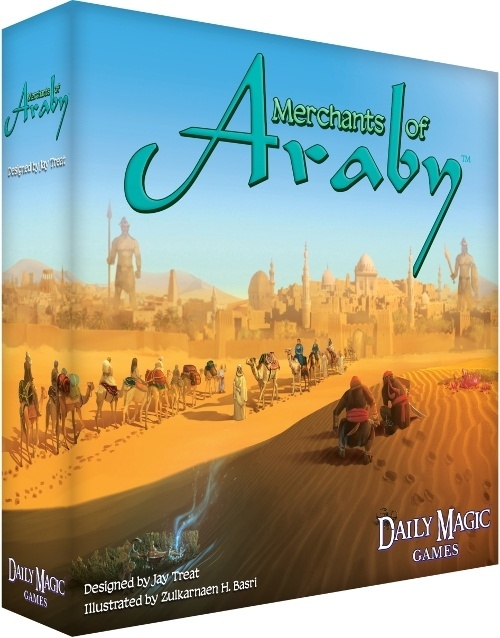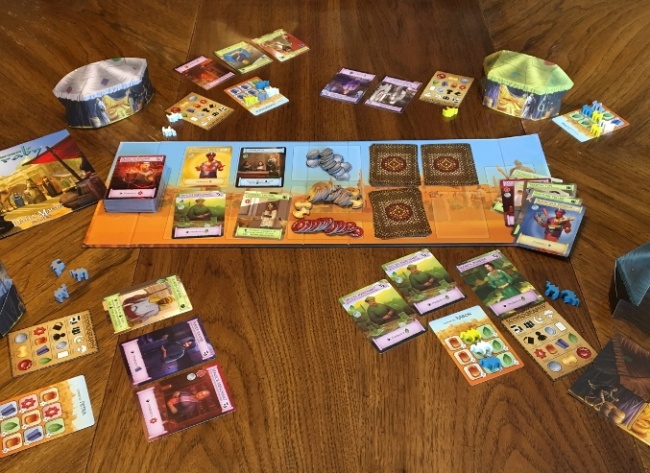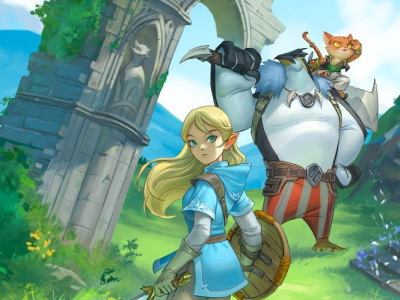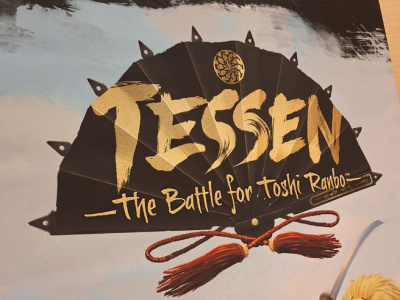Merchants of Araby
Publisher: Daily Magic Games
Release Date: July, 2017
Price: $39.00
Game Designer: Jay E. Treat III
Format: Board Game
Number of Players: 2 to 4
Playing Time: 45 to 60 minutes
Age Rating: 14 and up
Product #: DMGMOA-001
ICv2 Rating: 3 Stars out of 5
There is a romantic allure to the deserts of Arabia that cannot be denied. Whether it is the scandalous Tales of a Thousand Nights and a Night, or the cinematic drama of Lawrence of Arabia, there is something about the shifting sands of the Arab world that stirs the imagination. And what better theme could there be for a game than merchants squabbling over a place in the almost-sure-to-be-lucrative caravans that brave brigands to deliver priceless goods to distant cities? But is Merchants of Araby a djinn-powered whirlwind, or a mere dust devil in disguise?
Summary: Merchants of Araby puts players in the shoes of merchant princes or princesses (the game is remarkably egalitarian) competing to become the wealthiest in all the land. To make money, they provide goods for the caravans crossing the desert. Goods are produced by Merchant characters that can be hired to join the player’s entourage. Allies can also be recruited, which provide special abilities, while single-use Virtues and Djinn cards can provide a boost when needed.
Each turn, a new caravan sets out, whether it has been filled or not. Bandits always attack, randomly eliminating one camel from the caravan (they’re really quite considerate, seeing as they let the rest of the camels go, even if the camel they chose wasn’t carrying anything for them to steal). Camels that survive the journey then pay out coins, which serve as both an in-game currency and victory points. The game ends when the last caravan reaches its destination, and the wealthiest merchant wins.
Originality: So far, Merchants of Araby looks much like any number of resource investment games, but that doesn’t mean that there aren’t some innovative and clever things going on. The way resources are produced means that this game is more about managing the people in your entourage than it is about managing resources. The fact that cards refresh both at the beginning of your turn and at the end means that clever players can make use of their entourage both during their own turn and during an opponent’s turn, which opens up a surprising array of options for wheeling and dealing. And wheeling and dealing is really what the game is about: It is impossible for a player to load their caravan alone, so they must work with the other players to maximize profit. This forces player interaction and gives the game its spirited feel.
Presentation: Daily Magic did something with Merchants of Araby that is rarely seen and, to my mind at least, quite appreciated: the game box is the playing board. This trick allows the game to have an extra-thick, extra-sturdy game board that is hinged in such a way as to always lay flat on the table. Held in place by powerful magnets, it keeps all of the bits and pieces securely locked away, even after all the components have been punched out. The result is a game that feels sturdy and compact, wasting no more space on the shelf than absolutely necessary. Meanwhile, the artwork by Zulkarnaen H. Basri is attractive and evocative of the theme and the mysterious world of Araby.
Quality: The components are excellent, with quality linen-finish cards, good cardboard tokens, and 20 positively delightful little wooden camel tokens (that we have lovingly dubbed "cameeples"). The game board is simple, but amply functional, though in fairness experienced players may find it superfluous.
Sadly, the rulebook is rather rough around the edges. Things are not laid out in an easy-to-locate manner, making reference during play difficult. Even a straight reading may require two or three passes for some players to fully grasp what’s going on, as the game uses some unusual mechanics that won’t be familiar to many. It does have good examples and illustrations, but it could have used more to break up a number of "text walls" that dominate the middle of the book. Also, the cute little "tents" that players use to hide their wealth proved excessively fiddly and counter-intuitive to construct, yet oddly there is no illustration in the rulebook to show how they should go together.
Marketability: The game has a rather friendly price point for a small publisher’s offering, which is a mark in its favor. The attractive artwork and presentation are also a plus. But without sitting down and playing it, I fear that most gamers are going to look on Merchants of Araby as "just another" game in a well-trod genre. As a result, it may be tough for this game to build a following.
Overall: Merchants of Araby has a very slow start. It takes a few rounds for players to get their "engines" running, and by then the game is half over. It’s not uncommon for the first few caravans to wander into the desert without any goods to deliver, a counter-intuitive and unsatisfying scenario. Once it gets running, though, it is a lot of fun negotiating and finagling deals to get your goods on the camels so you can rake in the gold. But then the game hurtles quickly to its conclusion, ending much too soon. I would have liked to have a couple rounds of play before the first caravans even appear so that we could get to the fun part more quickly. But then, maybe that would make the life of an Arab merchant prince(ss) too easy? Hard to say.
Intriguing ideas that don’t feel fully developed makes Merchants of Araby a difficult game to really love, so I’m not convinced that it’s good enough to trigger a thousand nights worth of dreams. I’ll leave that to the storytellers to decide as I give this game 3 out of 5.
-- William Niebling
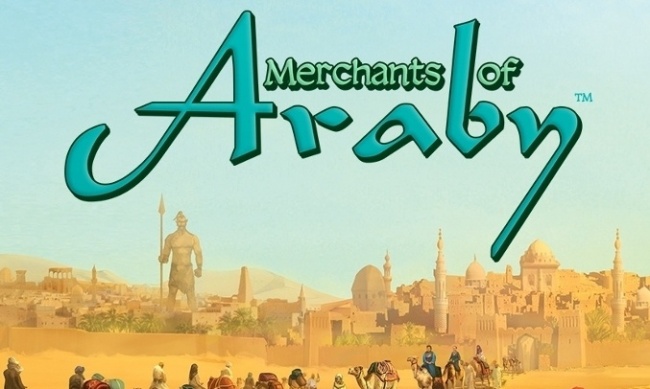
ICv2 Stars: 3 (out of 5)
Posted by William Niebling on July 10, 2017 @ 3:23 am CT
MORE GAMES
New Anime-Style RPG by Two Little Mice
August 4, 2025
Free League Publishing announced Twilight Sword RPG , a new RPG by Two Little Mice.
'Tessen: The Battle for Toshi Ranbo'
August 4, 2025
Office Dog previewed Tessen: The Battle for Toshi Ranbo, an Legend of the Five Rings board game.
MORE REVIEWS
ICv2 Stars: 3.5 (out of 5)
July 30, 2025
Here is a review of Ravensburger's Horrified: Dungeons & Dragons.
ICv2 Stars: 3.5 (out of 5)
July 24, 2025
Check out the review of Disney Villainous: Treacherous Tides, from Ravensburger.



